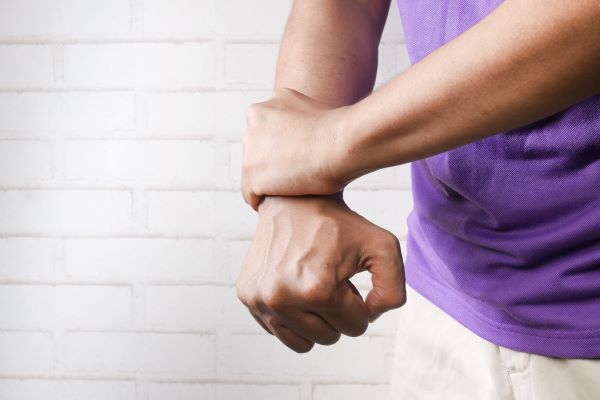In case you missed it see what’s in this section
Let's Talk
Your Total Guide To lifestyle

Key Things You Need To Know About Joint Pain And Stiffness
Joints make up the connections between bones, providing support and helping you move. As a result, any damage to your joints can interfere with your movement and cause you a lot of pain.
Joint pain is common and can be felt in multiple parts of the body, especially as you age. There are many factors of joint pain, including age, weight, previous injuries, as well as other medical conditions. Common types of joint pain include knee pain, shoulder pain, hip pain, foot pain, elbow pain, and neck pain. You may feel pain in one joint or more than one joint at the same time. Today we will share several key things you should know about joint pain and what you should look out for.
What Is Joint Pain
Joint pain or also known as arthralgia, which is discomfort that may arise from any joint. At times the joint may feel stiff, sore, or achy. Pain might come and go from time to time or remain constant for a period of time. It can also limit a person’s ability to do basic tasks and in some cases it can affect your quality of life. Additionally, your joint may feel stiff at the beginning of the day but loosen up and feel better with activity and movement. Nevertheless, it is possible that too much movement can make the pain worse.
What Causes Joint Pain
There are many potential causes of joint pain, such as an injury or a longer-lasting health problem like lupus. This is a persistent disease that causes inflammation in different parts of the body. You can learn more about lupus and the most common symptoms you can expect. Additionally, it’s important to understand what causes lupus and how it can affect the body. Moreover, you will find out how to treat lupus and what the outlook is for people with lupus. Other possible causes of joint pain include arthritis, gout, bursitis, or viral infections.
Who Is Likely To Experience Joint Pain
You are more likely to experience joint pain, if you have had previous injuries to your joints. Joint pain might affect those who repeatedly use or overuse a muscle or have arthritis or other chronic medical conditions. It may also affect those who suffer from depression, anxiety, or stress. Moreover, people who are overweight or obese are more likely to have joint pain than those who are not overweight. Anyone who suffers from poor health in general may be prone to joint pain. Another factor in stiff and painful joints is also age, as after years of wear and tear, joint problems may arise in older adults.
How Is Joint Pain Treated
While there might not be a cure for the pain, there are various things you can do to manage the pain and bring relief to your joints. At times, the pain may go away after taking over-the-counter medications or by performing simple stretches or exercises. You can also try at-home treatments, such as applying a heating pad or ice on the affected area. It may also be helpful to soak in a warm bathtub to offer some relief. In some cases, weight loss might also be recommended, if necessary, to lessen the strain on joints.
What Symptoms Are Causes For Concern
Symptoms of joint pain vary from mild to disabling and as a result, some people complain of a throbbing or burning sensation. Therefore, it is crucial to understand what may be a cause for concern. You may need to seek medical help in case you experience swelling, stiff or enlarged joints, numbness, and clicking, grinding, or snapping sounds when moving the joint. If pain is interfering with your day-to-day activities and you have difficulty bending or straightening a joint, it’s best to talk to a doctor
about the problem. Additionally, if your joint is red, hot, and swollen, this should be evacuated immediately by a medical professional.
How Is Joint Pain Diagnosed
It may be necessary to have a physical exam done by your doctor. During the exam, they will ask you a series of questions about your joint pain so that they can narrow down potential causes. A joint X-ray may be performed to determine if you have arthritis-related joint damage. If your doctor believes there is another cause, you may need to have a blood test to screen for certain autoimmune disorders, which may also involve measuring the level of inflammation in your body.
What Else Can Be Done To Relieve Joint Pain
If the joint pain is long-lasting and does not improve with medications, physical therapy, or exercise, surgery may be another option. However, it is important to discuss this possibility with your doctor to ensure that the operation makes sense. There are several different surgical options, such as arthroscopy and joint replacement. During arthroscopy, surgeons will make two or three small incisions to fix tears in soft tissues around the hip, knee, shoulder, and other joints. However, joint replacement may be suitable for people with severe joint pain, which has not lessened with other treatments or procedures.
Weather in Manchester
Listings










